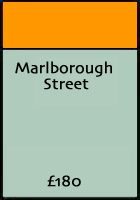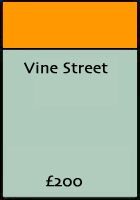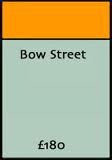London Monopoly
Although an American invention, Monopoly is a popular board game the world over. In the United Kingdom there are a number of Monopoly games available, but easily the most popular version is set in the capital: London. The majority of properties represented on the Monopoly board are still in existence today and can be visited by the general public. Visiting all the spaces on the Monopoly board is a relatively common experience that many Londoners turn into an evening out, taking part in what we call a ‘Monopoly Pub Crawl.’ But with or without the drink, a journey across London’s Monopoly Board is an interesting and unique way to visit London. From those who love to travel, to those who love the game, keep up with our trip around the Monopoly Board and experience London in an entirely new way!
Part 4 – Oranges
As a group, the most frequented spaces on the Board, the Oranges represent the old Legal and Police forces in London.
Top Tourist Tip: Nearby Bow Street lies Covent Garden, a popular spot to watch street performers and visit the market which has roots here that go back to the 1650’s
Now the site of the Royal Opera House, Bow Street runs through Covent Garden and was previously the home of the Lord Protector (and regicide) Oliver Cromwell in 1645. But Bow Street is truly well known in London for being the home of the Bow Street Runners - London’s first professional police force, which was based here upon its’ creation in 1749 by Henry Fielding. The Bow Street Group, as they called themselves, disbanded in 1839, having set the president for the regularisation of police forces in the capital. In 1919, Bow Street was the site for a riot (sparked by issues over gambling) in Covent Garden involving over 2000 Australian, American, and Canadian) service men and 50 police officers known as the ‘Battle of Bow Street.’ Bow Street Magistrate’s Court was also located here, from the early 18th century and it was here that Oscar Wilde, Emmeline and Christabel Pankhurst, The Kray Twins, and even Casanova all stood trial before the Court was closed in July 2006. Bought by an Austrian company, it is rumoured to be set to re-open as a police museum in future.
(Great) Marlborough Street (£180)

Vine Street (£200)









